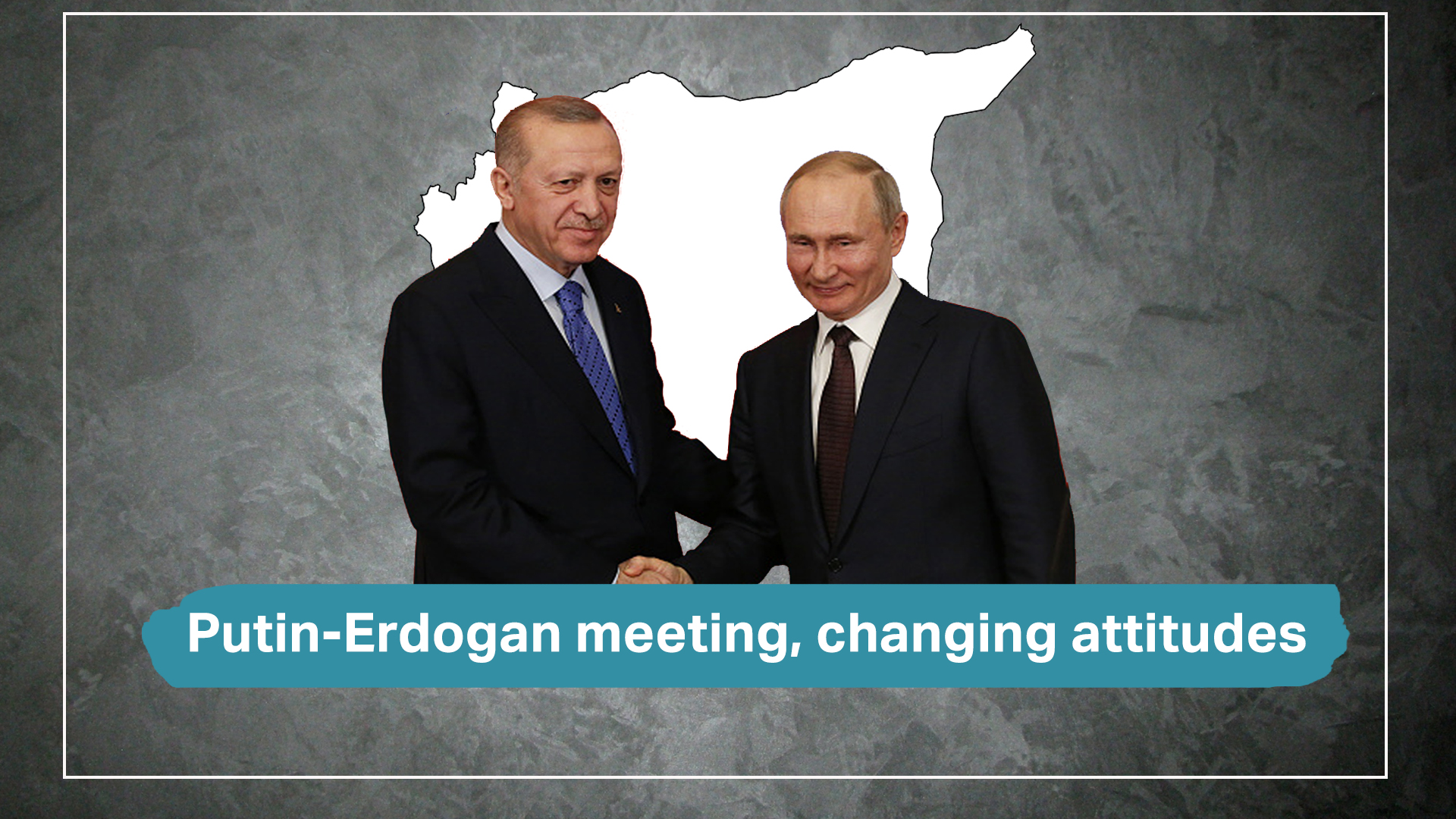
Perhaps the recent Sochi summit between Turkish President Recep Tayyip Erdogan and Russian President Vladimir Putin was the last card for offering some concessions by Turkey to Russia, especially after Turkey lost the old cards (the armed groups) that Turkey had always bargained for in the past rounds. It seems that Erdogan no longer has any tools to pressure the Russian president this time, but it is possible that Russia has many requests, which Putin tried to impose on Erdogan this time like restoring relations with the Syrian regime, and assisting it in extending its control over all Syrian territories.
Once again, Erdogan tried to persuade Putin to obtain approval to launch a new aggression against limited areas of Syria, although he was sure that all indications refer to the difficulty of obtaining such approval at present. Erdogan, who has recently suffered from several internal crises, which incites him to race against time to obtain any gains, especially after many promises he made to his masses without achieving any of them so far.
It is clear that Turkey is gambling with its latest cards regarding its military aggression, which it has been promoting for two months, after it was surprised by a categorical international and regional rejection. The recent attacks with drones some times and artillery on others, immediately after the summit, are only clear indications that this file is being resolved at the present time, meaning that it was almost categorically confirmed by the American and Russian positions not to allow it to attack directly, so we see it adopting a policy of provocative strikes to succeed in dragging the region into scattered reactions or confrontations, and for the matter to turn or develop with it into a legitimate process according to the Turkish point of view, and also to save its face after the heavy threats and sweet promises it made to the Turkish interior.
After the expansion of the range of targets and the increase in their number, we can conclude that it is not excluded that there was a veiled or undeclared agreement that had been discussed between the two presidents for limited strikes on the villages and towns east of the Euphrates to force the Syrian Democratic Forces (SDF) to make more concessions to the Syrian regime, which would result in favor of Russia, especially after the Turkish President’s statement – following the summit – that he will soon work on linking the entire security belt with a depth of 30 km on Turkey’s southern border within Syrian territory.
It is clear that Russia and Turkey are in a state of confusion, and that a lack of agreement still exists between them regarding the Syrian situation. Russia does not tacitly object Turkey taking an adventure in the eastern Euphrates region to anger the US and to always press for Erdogan to carry out an operation in Kobani or Tel Tamr, as an example, which are under the influence of the Global Coalition forces. Thus, it can create a crisis between Turkey and the US. At the same time, Turkey is reluctant to launch any attack on the west of the Euphrates, especially Manbij and Tel Rifaat, to please Iran.
Turkey is fully aware of this, and does not want or dare to launch a direct and open attack without obtaining the green light from the US. Perhaps to get out of this pitfall, Erdogan is trying a new settlement with the Russians, and often this will not be without a new barter. For these reasons, Turkey may have to make concessions in Idlib and its environs, as an example, to the Syrian regime, in order to satisfy the Russians. This in turn leads us to understand the recent statements by Turkish Foreign Minister, which indicated a willingness to provide full support for the Syrian regime in the fight against “terrorism”. This phrase is loose. How will such support be provided in light of the overlapping issues between the two countries?
Most likely, if things go according to the Russian plan, Turkey will hand over some opposition leaders – especially the military ones – to the Syrian government according to a specific timetable between the two parties, with an agreement also to hand over some areas under Turkish control to the Syrian government forces.
In general, any agreement between the two parties will be against the project of the Autonomous Administration of North and East Syria (AANES) and will be for the sake of the Syrian government forces to enter the border areas under the control of the SDF which Erdogan does not see as a threat to his alleged national security.




